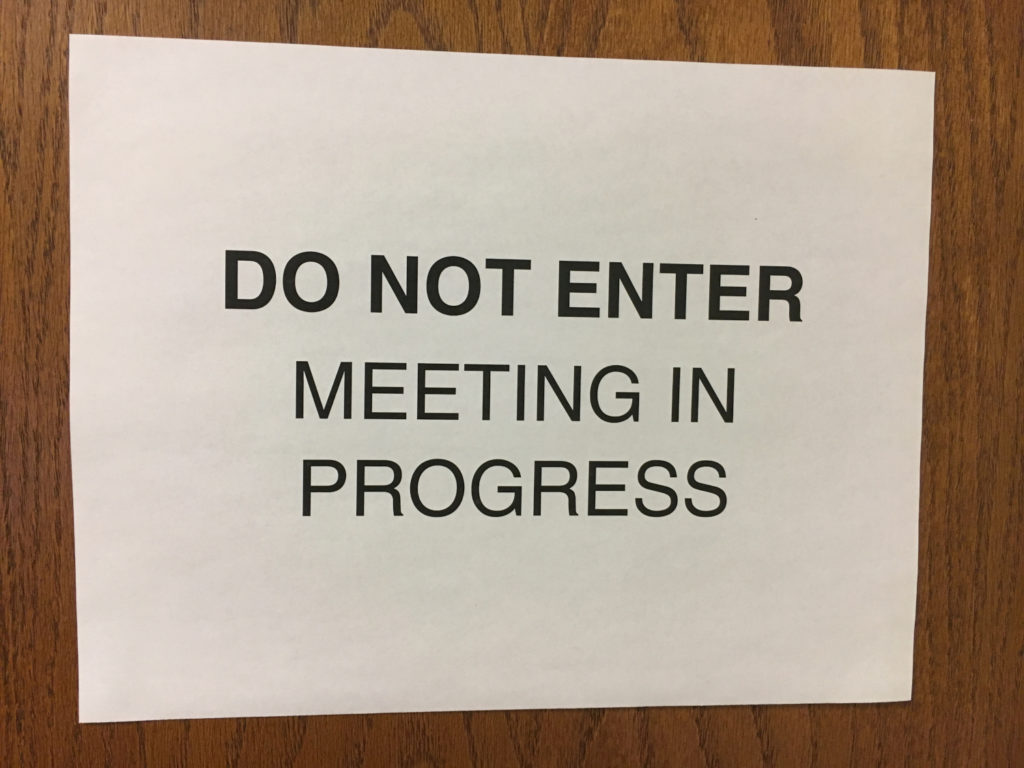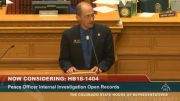By Jeffrey A. Roberts
CFOIC Executive Director
A case before the Colorado Court of Appeals focuses on what city councils and other government boards must tell the public before they meet in private.
Since 2001, the Colorado Open Meetings Law (aka the Sunshine Law) has required both state and local public bodies to announce the topic of each executive session “in as much detail as possible without compromising the purpose for which the executive session is authorized.” Before taking a vote, they must also cite a specific exemption in the law that permits the closed-door meeting.
The point of mandating some topic specificity is to provide citizens with something more than just a vague idea of why their elected officials are excluding them. It gives the public a way to police whether public bodies might be straying from the law, and it gives public officials a framework for avoiding confidential discussions of unauthorized topics.

But in a January 2017 ruling, Eagle County District Court Judge Russell Granger called the provision just a “technical” aspect of the Sunshine Law. He ruled that the town council in Basalt didn’t violate the law when it failed to describe the subject matter of 2016 executive sessions held to get legal advice and to discuss a personnel matter.
While Granger did determine that the Basalt council should have announced the topic of a closed-door discussion of a real estate deal, he labeled the violation “a hyper-technical ruling that places form over substance.” The judge wrote, “The Court notes the philosophical public value this case creates, but the Court also notes that in reality, this case will most likely cause more harm to the public than good.”
In an appeal filed earlier this month, plaintiff Theodore Guy noted that it was the town’s routine practice to not publicly announce the particular matter to be discussed in executive sessions. The appellate brief argues that Granger’s ruling, if allowed to stand, would “eviscerate” the topic-specificity provision of Colorado’s open meetings law, “substituting the Court’s view of the value of transparency in government for that of the legislature.”
State lawmakers added the provision to help citizens monitor “the doings of government,” the brief says. “The announcement of ‘the particular matter’ under consideration by a public body fulfills this role by alerting observers to which agencies, officials, or public records to watch for changes in policy or enforcement practices. That significant substantive change … was no mere ‘technicality’ to be ignored or belittled by the courts.”
Guy, a Basalt resident, is represented in his appeal by Denver attorneys Katayoun Donnelly, Tom Kelley and Steve Zansberg. Kelley is a Colorado Freedom of Information Coalition board member (and past president), and Zansberg is CFOIC’s board president.
Granger wrote in his 2017 decision that the Sunshine Law phrase “in as much detail as possible” is “ambiguous” because it would always be possible to find a way to further describe a particular matter to be discussed.
But the appropriate legal question, the appellate brief argues, is not how much detail must be provided, but whether the town council publicly announced any topic at all. The answer, Donnelly wrote, is “no, it did not.”
The judge determined that the Basalt council didn’t need to identify the particular matter to be discussed during the executive session for attorney advice because “the attorney client privilege may also extend to the subject matter itself.” Regarding the executive session on a personnel matter, he ruled that publicly naming the employee in question – the now-former town manager – could have compromised his privacy and breached the terms of his employment agreement.
Donnelly cited case law establishing that public employees have a narrower expectation of privacy than other citizens. And, she wrote, “a public body cannot, by contractual commitment, absolve itself from complying with the (Sunshine Law). The Town Council could no more legitimately contractually commit not to discuss its budget in a public meeting than it could commit itself, contractually, to not comply with the public announcement requirement for convening lawful executive sessions.”
Regarding the council’s failure to announce the topic of the attorney-client session, “there was no evidence that the subject matter of the consultation was intended to be kept confidential or that its disclosure would compromise the privilege in this case,” Donnelly contended.
Granger ruled for Guy regarding the real estate issue, he wrote, because no specific market concerns or other matters prevented the town from identifying the location of the property. The form in which the executive session was convened did not meet the Sunshine Law’s “strict compliance standard,” he wrote. Even so, he concluded, “The Court finds that the value to the public of the required highly technical application of the law is de minimis (trivial) in this case.”
The Court of Appeals has previously held that when a public body fails to “strictly” comply with the topic announcement requirements, an executive session is illegal and the audio recording should be made available for public inspection.
Follow the Colorado Freedom of Information Coalition on Twitter @CoFOIC. Like CFOIC’s Facebook page. Do you appreciate the information and resources provided by CFOIC? Please consider making a tax-deductible donation.




